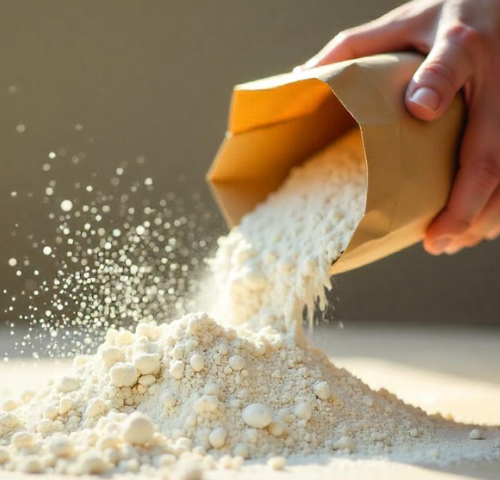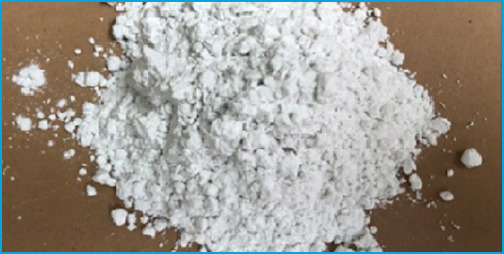
How Effective Is Diatomaceous Earth in Ant Nests
September 27, 2024
How to Use Diatomaceous Earth for Fleas: A Natural Flea Control Guide
September 27, 2024Diatomaceous Earth (DE)
Diatomaceous Earth (DE) is a naturally occurring substance made from the fossilized remains of diatoms, a type of algae. It is commonly used as a natural insecticide due to its ability to dehydrate and kill pests like ants, fleas, and bed bugs. Beyond pest control, DE has applications in agriculture, food production, and even personal care. However, with growing use, there has been increased curiosity about its impact on the environment and health, including its effects on beneficial bacteria.
Understanding Mechanism
To determine whether DE kills good bacteria, it is essential to understand how DE works. DE is composed of tiny, sharp, and abrasive silica particles. When applied to insects or pests, these sharp particles cut through the outer waxy layer of their exoskeletons, causing them to dehydrate and die. This desiccation process is purely mechanical, meaning that DE does not work like chemical pesticides, which disrupt biological functions in a targeted manner.
This mechanical action allows DE to be effective in pest control without introducing toxic substances into the environment. However, when used in environments where bacteria are present, particularly in soil or within the gut, questions arise about whether DE affects beneficial microbes in the same way it harms pests.
Does DE Affect Good Bacteria?
Good bacteria, or beneficial microorganisms, play crucial roles in soil health and the human microbiome. In the soil, they aid in nutrient cycling, organic matter decomposition, and plant growth. In the gut, they help with digestion, immune function, and maintaining overall health. Given these vital roles, understanding whether DE poses a threat to these bacteria is important.
Diatomaceous Earth and Soil Bacteria
In agricultural use, DE is often applied to the soil to control pests. However, studies suggest that it is unlikely to have a significant impact on the bacterial population in the soil. The reason is that DE’s mode of action—physical abrasion and desiccation—is more effective on larger organisms, like insects, rather than microscopic bacteria. Beneficial soil bacteria are much smaller and are not coated in the same way that insects are, making them less susceptible to the mechanical effects of DE.
Additionally, DE particles do not dissolve in water, so they remain inert and do not release chemicals that could harm microbial populations. Therefore, when used in appropriate quantities and applications, DE is generally considered safe for soil bacteria. In fact, some users report that it may even help improve soil structure, enhancing microbial activity over time by creating aeration and better water retention.
Gut Microbiota
DE has also been used as a supplement for humans and animals, often promoted as a detoxifying agent. When ingested, DE may help eliminate parasites and improve digestive health. The question arises: Does DE kill beneficial gut bacteria?
Similar to its effect in the soil, DE's impact on gut bacteria is believed to be minimal. The abrasive particles of DE primarily target larger organisms, such as parasites or intestinal worms, without affecting the much smaller and more resilient bacteria. DE does not act as a chemical antibiotic that kills bacteria indiscriminately; instead, its action is mechanical. As such, it passes through the digestive system without significantly disrupting the balance of good bacteria.
However, it’s important to note that the overall effect of DE on the gut microbiome has not been extensively studied. While anecdotal evidence suggests that it may not harm beneficial bacteria, more scientific research is needed to fully understand the implications of DE ingestion on gut health.
Balancing Use and Benefits
While DE appears to have little direct impact on beneficial bacteria, its overall use should still be managed carefully. Over-application in agricultural settings could inadvertently disrupt soil ecosystems, not by killing bacteria but by altering the physical properties of the soil. Similarly, ingestion of large amounts of DE without proper guidance could lead to unintended consequences, such as digestive irritation.
When used in moderation and according to best practices, DE can offer the benefits of pest control and detoxification without significantly affecting the balance of beneficial bacteria. Always ensure that DE used for ingestion is food-grade and safe for human or animal consumption.
Conclusion
With its unique mechanical mode of action, DE does not appear to kill good bacteria in the soil or gut. It targets larger organisms like pests and parasites without significantly disrupting microbial populations. However, as with any product, it is important to use DE responsibly to avoid unintended side effects. For agricultural and home use, it can be a safe, natural solution to pest problems while preserving the beneficial bacteria that support a healthy environment.
For more information on using DE safely, reach out to Seema Minerals & Metals, a trusted supplier of high-quality DE and other mineral products.



